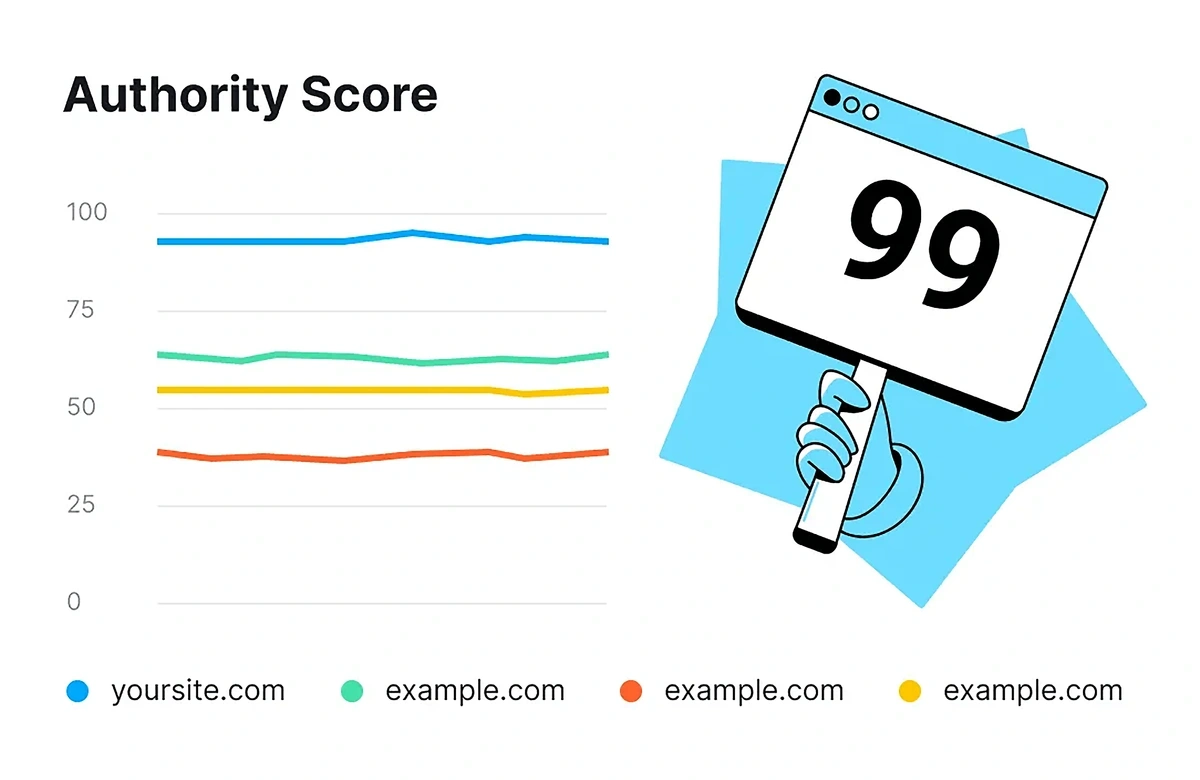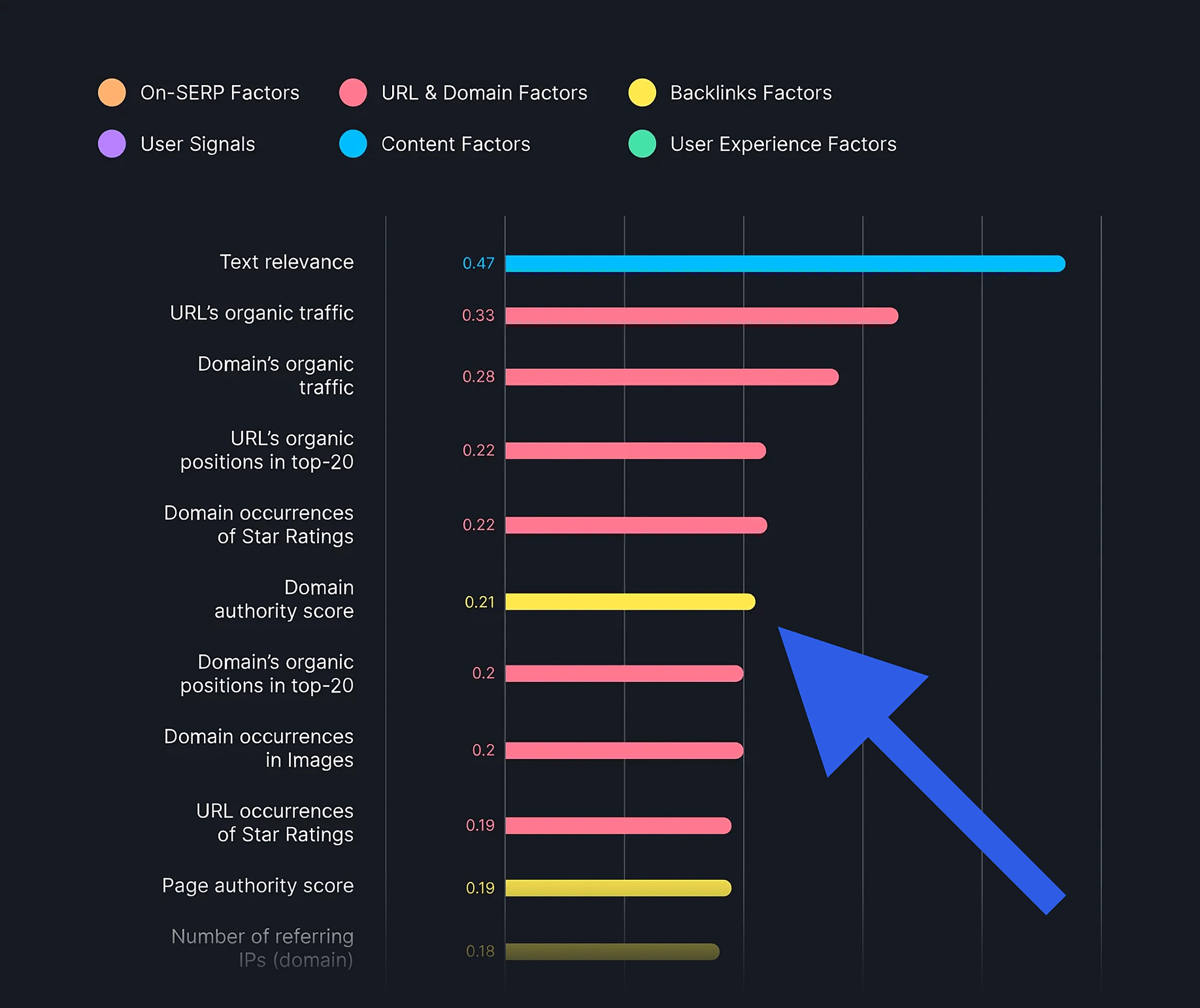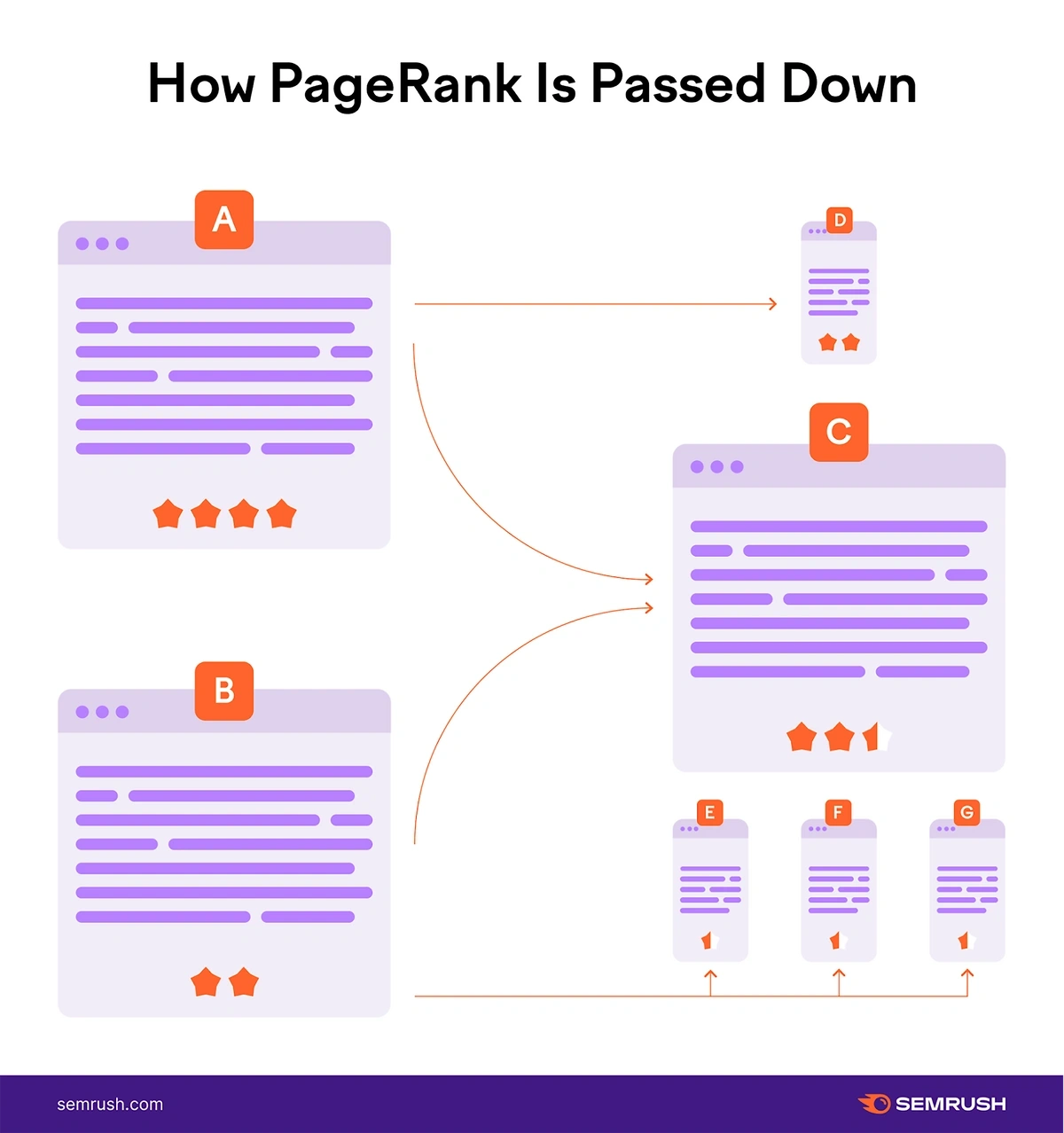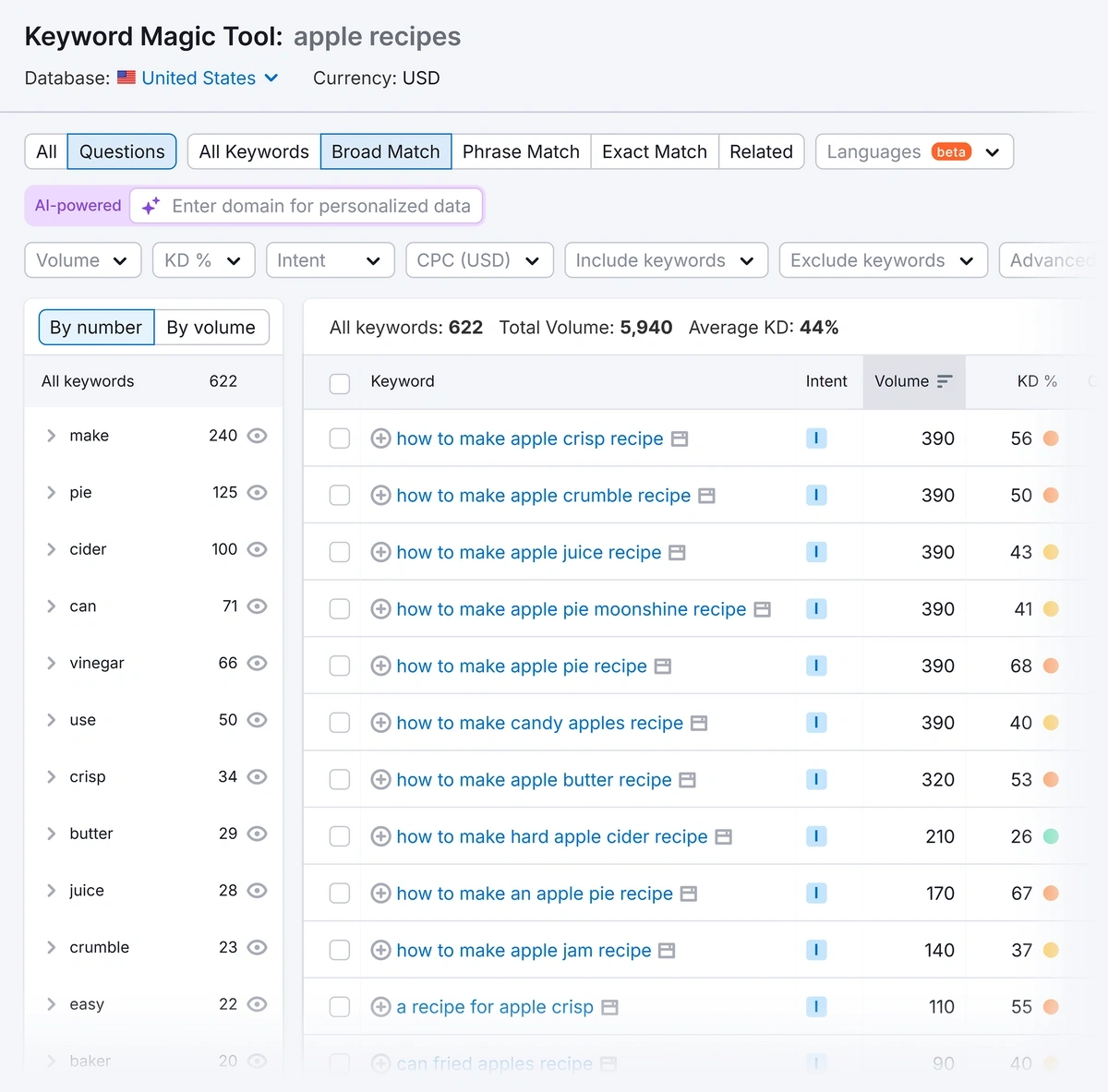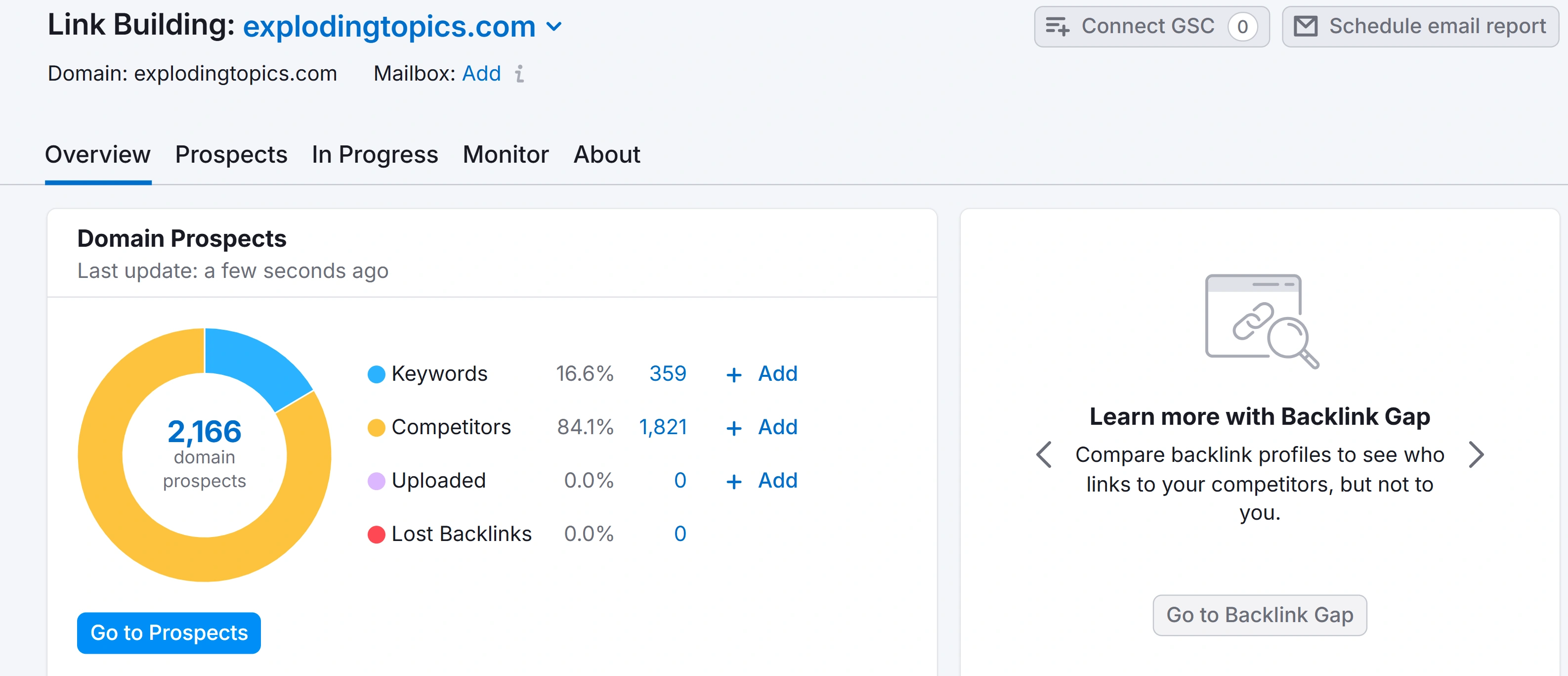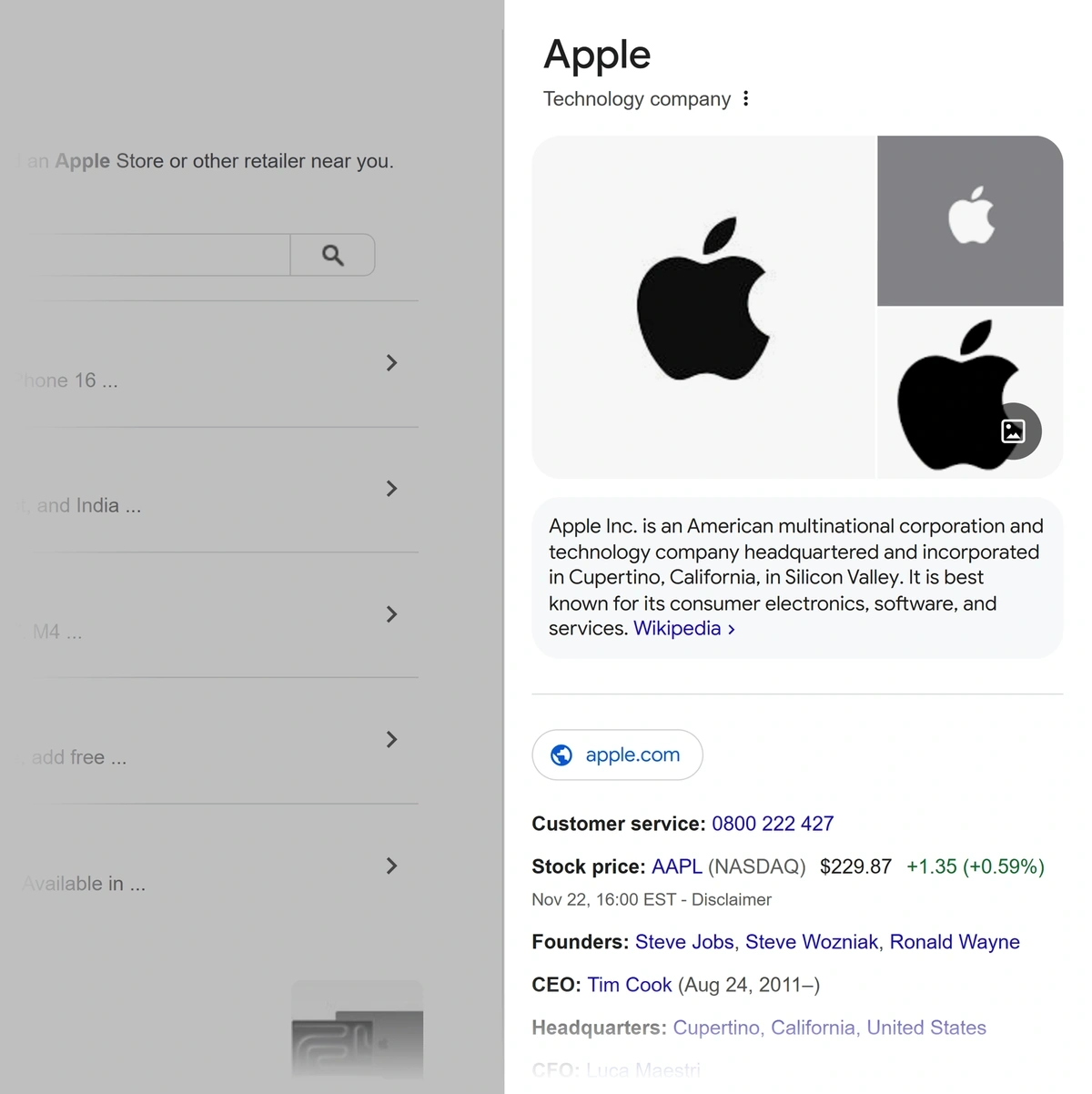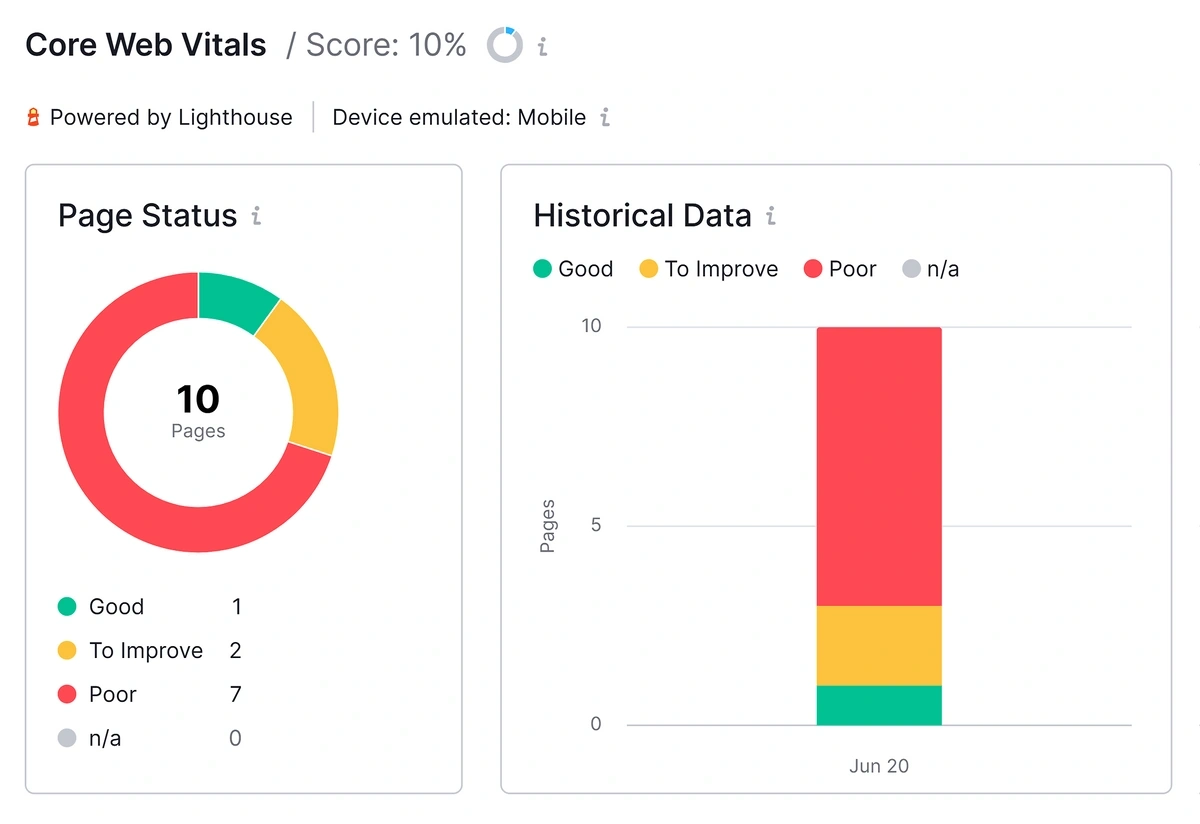Get Advanced Insights on Any Topic
Discover Trends 12+ Months Before Everyone Else
How We Find Trends Before They Take Off
Exploding Topics’ advanced algorithm monitors millions of unstructured data points to spot trends early on.

Features
Keyword Research
Performance Tracking
Competitor Intelligence
Fix Your Site’s SEO Issues in 30 Seconds
Find technical issues blocking search visibility. Get prioritized, actionable fixes in seconds.
Powered by data from
The Best Ways to Check and Improve Your Website Authority
Our free website authority checker lets you check domain authority for any website on the internet.
To get your domain's authority score, just enter domain name and hit enter.
The website authority report is split into six sections.
First, you’ll see an overview of domain metrics, like your authority score. This indicates the level of trust that search engines (like Google) have in your site.
The next part of the report shows you:
- The top pages on that site, ranked by organic traffic percentage
- The main competing sites in organic search results
Beyond Authority Scores: Get actionable insights by viewing your Authority Score trend alongside your best performing keywords, SERP features your domain ranks for, backlink gaps to boost your domain strength and more by signing up for a free Semrush account.
Scrolling down, you’ll see the top ranking keywords for the domain you’re analyzing. Our free website authority checker shows you:
- Ranking position, including any recent changes
- The percentage of traffic that keyword is driving
- Keyword volume
- Keyword difficulty
- Cost-per-click
- Number of results for that keyword
- Search trend over time
Finally, you’ll see the trend in Referring Domains and Backlinks over the last 12 months.
How to Use the Site Authority Checker
The obvious use of this tool's domain authority score checks is to get an estimate of how trustworthy your domain is in the eyes of Google.
But you can get a lot more resourceful than that. Here's how to use this tool to its full potential.
1. Compare Your Authority Score with Competitors
Checking the Authority Score (AS) of your site is an important first step. This is how you'll know if your domain is strong enough to dominate search results on Google.
However, the full picture will come into view only when you know how your Authority Score racks up with your competitors'.
Because Authority Scores are relative, even a seemingly low score can actually be pretty good within the context of your immediate niche.
You can use the authority checker tool multiple times for each of your main competitors. Pay attention to the Authority Scores and see how you compare with your competitors.
If your AS is higher or comparable to that of your competitors, your domain is already strong enough to compete for top-rankings for valuable keywords.
For example, Exploding Topics has a 20% "competition level" with Demand Sage. Our authority score is 56, versus 47 for our competitor, putting us in a strong position to rank for shared keywords.
But if your AS is significantly lower, you're likely to struggle a bit especially for keywords with a moderate to high difficulty score.
In that case, I recommend dedicating a little more time in acquiring backlinks to your domain, which is one of the most powerful ways to improve your Authority Score. See our link building tips for some easy strategies you can use.
Note: Our website authority checker uses the Semrush metric for domain authority, branded as Authority Score. It's important to remember this isn't a definitive measure. Most SEO tools have their own unique measurements, based on the same essential idea that factor in considerations like niche relevance of backlinks, content quality and traffic, and avoiding spammy links.
2. Evaluate Quality of Linking Opportunities
Not all links are equal in their impact on your Authority Score and offering the ranking benefits you're expecting.
In my experience, a few high-quality backlinks relevant to your domain's topical areas produce better results than many backlinks from questionable sources with weak alignment to your topics.
One factor you should look at when prospecting a domain as a potential backlink source is their Authority Score. So when you're performing outreach, prioritize domains with a stronger Authority Score.
Once again, you can do this by analyzing multiple prospects one by one with our domain authority checker.
Remember: Authority Score is one of many metrics that characterize a high-quality backlink. Don't forget to use your judgement about relevance of the webpage you're obtaining a link from. Google doesn't appreciate backlinks from pages that are irrelevant to your niche, no matter how strong the domain is.
Why Does Website Authority Matter?
When you need to quickly capitalize on a trending topic, ranking quickly will give you an advantage. Building authority increases your chances of being able to rank for those new, trending keywords while also outranking others sites for more competitive keywords relevant to your niche.
I’ve noticed that a website’s authority significantly impacts its rankings in Google.
High-authority websites consistently tend to rank near the top of search engine results pages (SERPs).
In fact, a recent Semrush study found website authority to be one of the top 6 factors that correlate with rankings.
Exact authority scores differ from one SEO platform to another. Most tools calculate a domain authority score based on factors like:
- Link quality
- Traffic
- Brand credibility
The free website authority checker on this page uses Semrush data.
Higher authority sites also become preferred targets for link building. A site with a strong backlink profile will likely build authority faster.
You can use a backlink checker to see your backlink profile and identify new link building opportunities.
Understanding Website Authority Metrics
The story of website authority begins with Google PageRank.
PageRank was based on the idea that a website's authority is determined by the number and quality of links pointing to it. The more backlinks a site receives from other reputable websites, the higher its PageRank score.
It was a simple, elegant concept that reflected a site's popularity and influence.
Today, Google considers hundreds of ranking factors, making PageRank just one part of a broader assessment of a website's overall relevance and authority.
3 Top Website Authority Metrics
SEO platforms gather immense amounts of data to gauge how authoritative a website is. They consolidate this into a single score.
Depending on the platform you’re using, you might see:
- Semrush Authority Score (AS): Combines factors like link quality, organic traffic, and spam presence to create an accurate measure, aiming to reduce link manipulation.
- Ahrefs Domain Rating (DR): Assesses the quality and number of backlinks. Higher DR suggests a stronger link profile.
- Moz Domain Authority (DA): Estimates authority using several factors, focusing on inbound links and unique root domains.
The free website authority checker (at the top of this page) uses the Semrush Authority Score. It's exactly the same as the score in the Semrush Domain Overview.
You can see how two big SEO tools compared when we tested Semrush vs. Ahrefs.
Strategies to Increase Website Authority
Improvements in website authority are a byproduct of following good SEO practices and producing high-quality, relevant content on your site.
Here are four strategies that I've found to be helpful for boosting your website’s authority score.
1. Produce High-Quality Content
High-quality content appeals to users and Google, leading to increased engagement and shares.
You can expand and improve on the content your audience cares about to build authority on that topic.
For example, you might:
- Discover trending keywords and low-competition search terms relevant to your website
- Conduct a content audit to find existing content you can optimize or repurpose
- Use an AI SEO writing tool to beef up the content on your site and broaden your topic coverage
- Use internal linking to help authority cascade down from the most popular pages on your site.
I always advise businesses to keep their most important content up-to-date. Content naturally decays if it’s not updated, so regular updates improve the freshness and signal that your website is actively maintained.
2. Earn Quality Backlinks
Acquiring backlinks from respected sites can increase authority.
The better your authority score, the easier it is to get high-quality backlinks.
Your website authority can be negatively impacted by backlinks from spammy or untrustworthy sites.
Our free website authority checker shows you backlinks broken down by URL.
To get strong backlinks and avoid toxic ones:
- Use a backlink checker to see if any existing backlinks could be hurting you
- If you find any harmful backlinks, remember to disavow them
- Aim to get backlinks from topically relevant sites
- Identify relevant high-authority backlink opportunities with the Semrush Link Building Tool.
Want to Beat Your Competition?
Find out who’s linking to them and build a better backlink strategy.
3. Develop a Strong Brand
Consistent branding, design, and interaction foster trust. As Google changes the way it ranks results, it seems to be putting more importance on strong, recognizable brands.
If you’re not sure how to build a strong brand, here are some places to start:
- Make sure you’re tracking the right brand metrics
- Follow the latest brand design trends, and update your branding elements as necessary
- If your branded search has a Google Knowledge Panel, make sure you claim and optimize it
- Engage in branded SEO best practices so your brand shows up the way you want it to in the SERPs.
4. Implement Technical SEO
Technical SEO involves optimizing the technical aspects of your website. For example, it includes making your site load more quickly and minimizing the number of errors.
I always use the Semrush Site Audit Tool to identify and fix technical issues. It lists them in order of priority, making it easy to tackle the most urgent problems first.
To learn more:
- Understand technical SEO best practices so you know how your website can be affected.
- Track the latest trends in technical SEO to stay on top of new developments.
Take Action to Improve Website Authority with Semrush
Increasing website authority requires consistent effort. Using Semrush tools simplifies each step.
After checking your website authority with our free checker, you'll want to get more insights to improve your domain's standing with Google.
Sign up for Semrush today to access tools that can boost your website authority, analyze backlinks, and optimize technical SEO—all in one platform.
Stop Guessing, Start Growing 🚀
Use real-time topic data to create content that resonates and brings results.
Exploding Topics is owned by Semrush. Our mission is to provide accurate data and expert insights on emerging trends. Unless otherwise noted, this page’s content was written by either an employee or a paid contractor of Semrush Inc.
Share
Newsletter Signup
By clicking “Subscribe” you agree to Semrush Privacy Policy and consent to Semrush using your contact data for newsletter purposes






